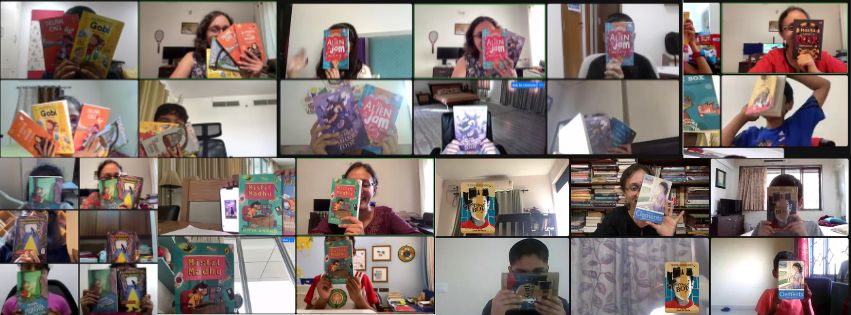
A Little History
I started conducting reading and writing workshops for children in 2013 at the British Library, Pune. It was fun, and the library space was exciting. Both as standalone events and as part of the library’s larger Reading Challenges, it seemed to me that libraries were ideal for workshops of the kind I liked to conduct.
Soon, I contacted other libraries and conducted sessions elsewhere too – at Just Books, Atta Galatta, The Story Station … Sometimes, the response was excellent, overwhelming. At other times, no one showed up.
As someone starting out, this was, naturally, demotivating! But I kept at it … for reasons I won’t get into right now.
The Current Scenario
Since 2020, I’ve been teaching primarily online. And in some ways, teaching online is the same. For instance, right now, four of my six batches are sold out! All my batches have enough participants for me to go ahead and conduct my sessions, and that’s always exciting.
But that doesn’t mean I haven’t cancelled sessions in the past. I haven’t (yet) had to cancel a writing programme, but there have been book clubs that have had a rather underwhelming response, especially as post-pandemic, parents are keen on reducing their children’s screen time.
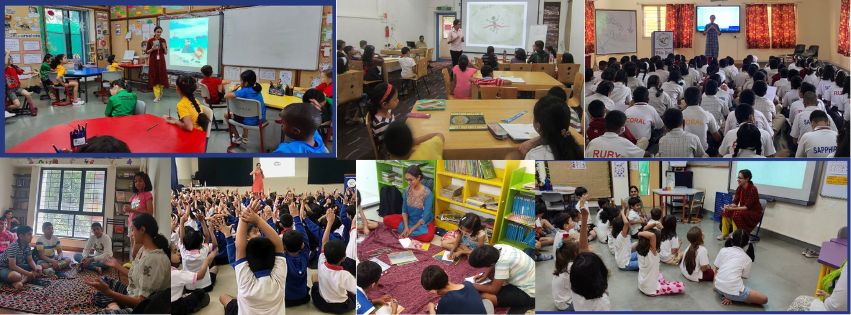
Offline to Hybrid
But here is where things get interesting.
I started running a writers’ club at a school in Pune in 2015. Pre-pandemic, online sessions were out of the question. We had fun; we even brought out a book called Flickering Flames, celebrating the school’s sesquicentennial year.
In 2020, we discontinued the writers’ club, thanks to covid. I got busy with my own workshops and programmes, and I finally agreed to start teaching again in 2023, on the condition that I could conduct some of my sessions online when I was travelling.
At the end of the academic year, I asked the children to submit their best pieces to me, which I compiled in an e-magazine.
What I Noticed
And this is where I come to the most interesting statistic. Over 70% of the pieces submitted to me were written during our three or four online sessions, rather than during the 20 odd offline sessions!
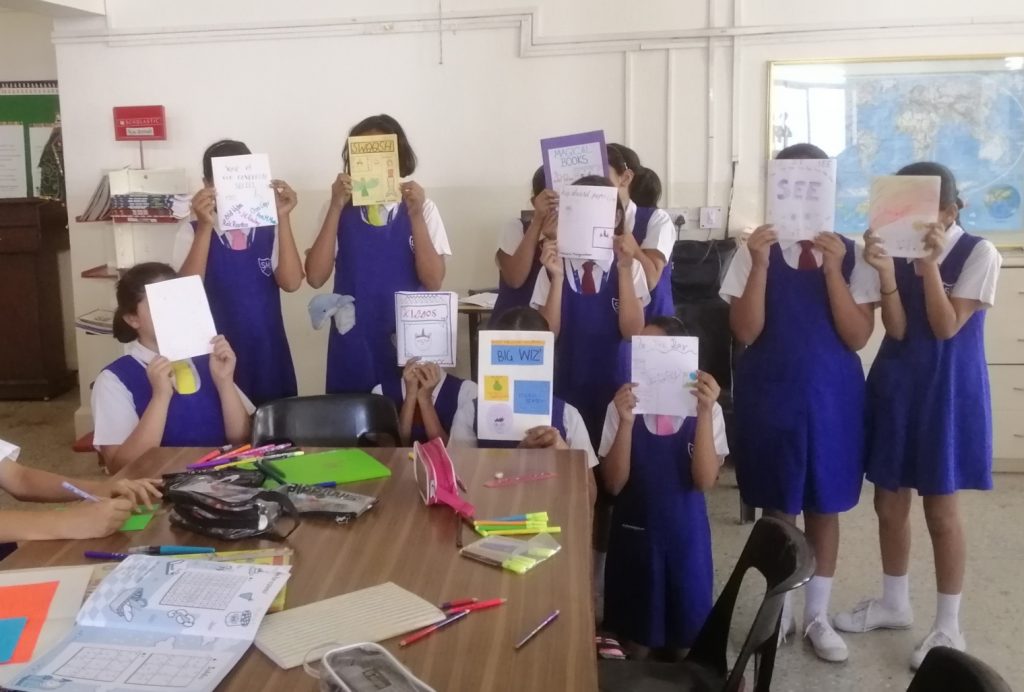
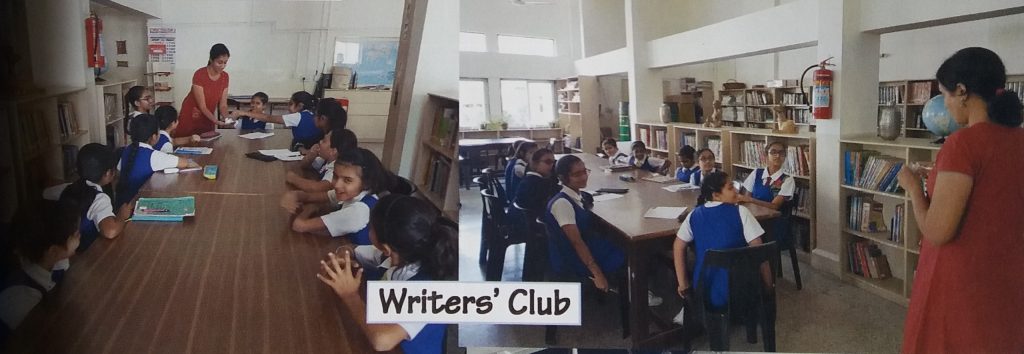
Also interestingly, I had nearly 100 participants who stayed with me right through the year at this offline, in-person writers’ club, and our magazine was all of 16 pages long.
At my online creative writing programmes, I have had between eight and 18 participants, and each issue of our e-magazine has been between 40 and 72 pages long.
Let me quickly say that not everything children write goes into the e-magazine! I want my participants to edit and rewrite, not submit first drafts. So, we’re talking about 40 to 72 pages of hard work, revisited and reworked many times over!
Why This Difference?
To me, the answer is clear. Online, children are comfortable. They are in their own safe spaces, free to express themselves without the distractions of borrowing an eraser from someone on the other side of the room or listening to whispers behind them. They are focused and interested. In the case of preteens and teenagers, at home, they are less concerned about the image they portray because they can simply switch off their cameras.
All in all, they’re in a space more conducive to learning, creating and imagining than a noisy classroom full of boisterous peers.
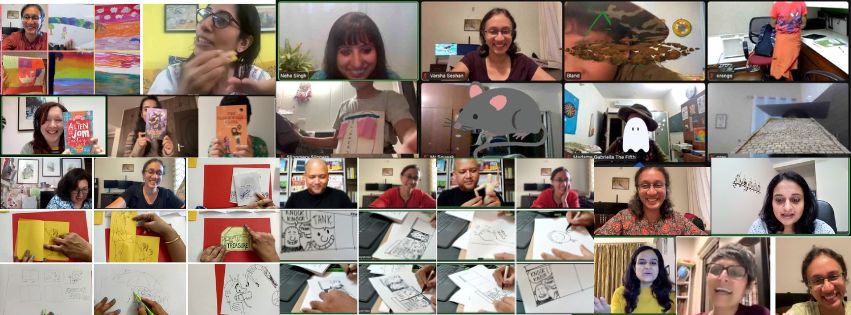
Taking This Further
Of course, I must share this with a disclaimer: I am not saying that all education is more effective online. There’s a big difference, for instance, between school and the workshops I conduct. Children join my sessions because they want to join. For the most part, they enjoy reading and writing, and when we remove distractions, they perform more freely, and consequently, better.
But the advantages of online workshops don’t end here. The children at my online writing programmes have the opportunity to interact with experts from all over the world. I have had guests from the US, Malaysia and the UK, as well as different parts of India–Mumbai, Kolkata, Bengaluru and more!
Safe spaces, the freedom to switch off your camera, spell check on your computer, fewer distractions, interacting with others from around the world … what’s not to like?
And that’s why, if you ask me what is better, online or offline workshops for children, I’m going to stick my neck out here and say ‘online’. For reading and writing, it’s online all the way.
If you would like to know about my online prgrammes (or even my offline ones!), join my mailing list. Alternatively, follow me on social media – Facebook or Instagram – for regular updates.
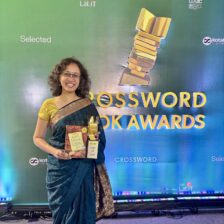
Wow! Amazing piece! I am in Pune in too! And would love to collaborate with you!
Glad you enjoyed it! I work primarily online, but if there’s an opportunity to collaborate, I’ll get in touch. Thanks!
Online learning gave students access to best teachers and resources in the world and it gave teachers access to wide pool of students which is a win win situation for both.
With zero commute time to attend the classes,kids and teachers can use the saved time for leisure,family and play.
Online has revolutionised the learning by breaking barriers in access to teachers and resources and there by giving a level playing field for students from nonmetros with metros.
I agree!